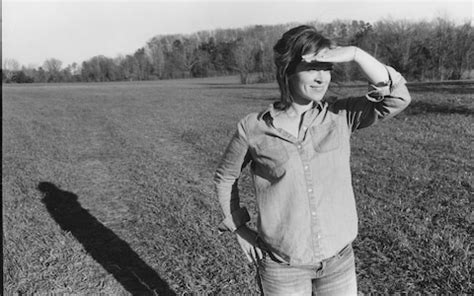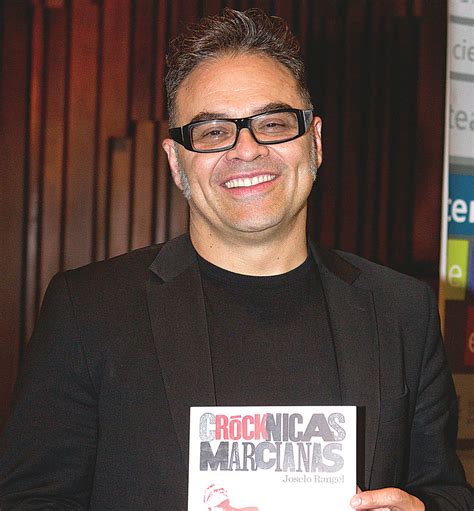A Quote by C.E. Morgan
I often think there are three primary responses to suffering - rage, intoxication, or growth. We either want revenge for our pain, or we numb ourselves with the endless array of intoxicants available to us, from drugs to overwork, or we grow in empathy. Emptiness can transform into spaciousness; lack can become an agent of social action. But I think many of us struggle to remain on that third path without backsliding into the other two. I do.
Quote Topics
Action
Agent
Array
Available
Backsliding
Become
Either
Empathy
Emptiness
Endless
Grow
Growth
Intoxication
Lack
Many
Numb
Often
Other
Our
Ourselves
Overwork
Pain
Path
Primary
Rage
Remain
Responses
Revenge
Social
Social Action
Spaciousness
Struggle
Suffering
Think
Third
Three
Transform
Two
Us
Want
Without
Related Quotes
Our possibilities of happiness are already restricted by our constitution. Unhappiness is much less difficult to experience. We are threatened with suffering from three directions: from our own body, which is doomed to decay and dissolution and which cannot even do without pain and anxiety as warning signals; from the external world, which may rage against us with overwhelming and merciless forces of destruction; and finally from our relations to other men. The suffering which comes from this last source is perhaps more painful to us than any other.
We have become terribly vulnerable, not because we suffer but because we have separated ourselves from each other. A patient once told me that he had tried to ignore his own suffering and the suffering of other people because he had wanted to be happy. Yet becoming numb to suffering will not make us happy. The part in us that feels suffering is the same as the part that feels joy.
One of the primary conditions for suffering is denial. Shutting our mind to pain, whether in ourselves or others, only ensures that it will continue. We must have the strength to face it without turning away. By opening to the pain we see around us with wisdom and compassion, we start to experience the intimate connection of our relationship with all beings.
Justice is not available to all equally; it is something that many of us must struggle to achieve. As an elected official, I know that fighting for what is just is not always popular but it is necessary; that is the real challenge that public servants face and it is where courage counts the most. Without courage, our action or inaction results in suffering of the few and injustice for all.
It is our own pain, and our own desire to be free of it, that alerts us to the suffering of the world. It is our personal discovery that pain can be acknowledged, even held lovingly, that enables us to look at the pain around us unflinchingly and feel compassion being born in us. We need to start with ourselves.
God wants to be our partner throughout life. Too often we are tempted to either carry the entire load ourselves or give everything to God and do nothing. God doesn't like either strategy. Sometimes He moves before us and sometimes after us - but He doesn't move without us. Without God... we cannot. Without us... God will not.
We become pitiable and ridiculous when we imbibe an unreasoned mysticism in our life without any natural or substantial basis. People like us, who are proud to be revolutionary in every sense, should always be prepared to bear all the difficulties, anxieties, pain and suffering which we invite upon ourselves by the struggles initiated by us and for which we call ourselves revolutionary.
There is no true and constant gentleness without humility. While we are so fond of ourselves, we are easily offended with others. Let us be persuaded that nothing is due to us, and then nothing will disturb us. Let us often think of our own infirmities, and we will become indulgent towards those of others.
Buddhist words such as compassion and emptiness don't mean much until we start cultivating our innate ability simply to be there with pain with an open heart and the willingness not to instantly try to get ground under our feet. For instance, if what we're feeling is rage, we usually assume that there are only two ways to relate to it. One is to blame others. Lay it all on somebody else; drive all blames into everyone else. The other alternative is to feel guilty about our rage and blame ourselves.
Television, radio, and all the sources of amusement and information that surround us in our daily lives are also artificial props. They can give us the impression that our minds are active, because we are required to react to stimuli from the outside. But the power of those external stimuli to keep us going is limited. They are like drugs. We grow used to them, and we continuously need more and more of them. Eventually, they have little or no effect. Then, if we lack resources within ourselves, we cease to grow intellectually, morally, and spiritually. And we we cease to grow, we begin to die.
Compassion allows us to use our own pain and the pain of others as a vehicle for connection. This is a delicate and profound path. We may be adverse to seeing our own suffering because it tends to ignite a blaze of self-blame and regret. And we may be adverse to seeing suffering in others because we find it unbearable or distasteful, or we find it threatening to our own happiness. All of these possible reactions to the suffering in the word make us want to turn away from life.
We don't think of ourselves in Cafe Tacvba as representatives. When we go and make new material, we feel that our creations are more authentic if we think of ourselves. We don't say, "Let's be the representatives and show the moment that our society is in." But when it comes to performing and we visit other countries, like New York, many people approach us, people who are outside of their own country, and we become a referent. Our shows become this sort of ritual, and our performances become that moment of identity.
We think that by protecting ourselves from suffering, we are being kind to ourselves. The truth is we only become more fearful, more hardened and more alienated. We experience ourselves as being separate from the whole. This separateness becomes like a prison for us - a prison that restricts us to our personal hopes and fears, and to caring only for the people nearest to us. Curiously enough, if we primarily try to shield ourselves from discomfort, we suffer. Yet, when we don't close off, when we let our hearts break, we discover our kinship with all beings.
































